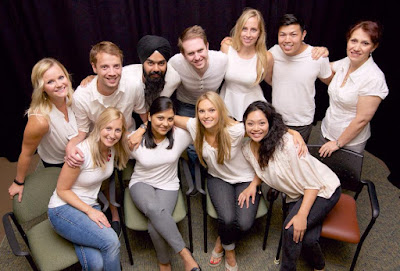This year flew by. The summer came and went and I find
myself celebrating my 1 year work anniversary. I’ve learned a lot this year and I still have lots to learn. Now I have good solid relationships
with my supervising physicians and am now comfortable with the different styles
they each have. I am more confident, thorough and precise in my history taking,
physical exams, choosing what tests to order and determining a treatment plan. I still have to remind myself that I’ve
only been exposed to medicine for 3 years and still have lots to learn and
relearn. I recognize the patterns of the most common presentations that are
admitted to hospital and course of treatment.
This last year was a big learning experience on how to
work as a physician assistant as well as how to go back to things I did before
entering PA school. This year was a balance of being comfortable in the work
environment and starting to focus on other areas of my life.
My goal for this year is to continually educate myself
and hopefully create a Canadian study guide for the certification exam (I know
I keep saying this). I would also like to advocate more for PAs in Canada and
am hoping to get involved in more research related to PAs in Canada.
Class of 2015 Graduation
CONGRATS!!!
Here is Dr. Bellas delivering one of his great speeches.
Again, he has been chosen for the PA educator award.
“At the end of the day people won't remember what you said or did, they
will remember how you made them feel.”
― Maya Angelou
Welcoming the Class of 2017
An impressive group of people. With a lot of education
and experience. I would have not gotten into the program this year applying with these amazing candidates.
I wish your class an awesome 2 years of learning,
support and friendship. You won’t forget it!!




















